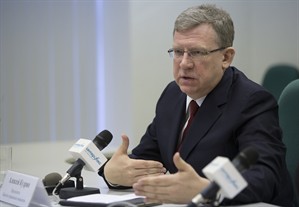Elevate your local knowledge
Sign up for the iNFOnews newsletter today!

MOSCOW – Russia has bailed out a mid-sized bank for about $500 million to save it from bankruptcy— a clear sign that the slide in the value of the ruble in the wake of sliding oil prices is straining the banking system.
The Central Bank said Monday it will give Trust Bank 30 billion rubles that will allow it to continue operating as normal.
It will also place Trust Bank under its own supervision until it finds an investor. Major Russian banks said they had no interest in acquiring Trust, a top 30 Russian bank with about $5 billion in assets.
The problems afflicting Trust Bank follow a tumultuous period for the ruble, which is one of the worst-performing currencies this year, along with the Ukrainian hryvnia. A respected former Russian finance minister warned that the country is headed for “a full-blown economic crisis.”
It has fallen by a half this year as oil prices have fallen. Last week, its descent gathered pace, sparking a consumer boom as worried Russians flocked to shops to buy cars and durable goods before prices rose further.
Still, deputy Prime Minister Igor Shuvalov said Monday he expects the ruble to rally following some signs of stability over the past few trading sessions. Following moderate gains at the end of last week, the ruble surged 8 per cent in early evening trading on Monday, at 54 against the U.S. dollar.
He also said the government is not planning to introduce currency controls on Russian companies. The ruble’s collapse has stirred rumours that Russia could introduce capital and currency controls to keep the rate high.
The Russian currency has been battered by low oil prices, now around $60 a barrel, down from a June high of $107, as well as the sanctions that the West imposed on Russia for its involvement in Ukraine and the annexation of Crimea.
The fall in oil prices is one of the major reasons why Russia is expected to fall into recession next year.
Alexei Kudrin, a well-respected former Russian finance minister, said oil prices weren’t the main reason why the ruble has suffered this year. In comments to reporters, he said low oil prices account for as little as a quarter of the ruble decline whereas the sanctions imposed on the country could be contributing up to 40 per cent of the collapse.
Kudrin warned that Russia will enter recession even if oil prices are as high as $80.
“We are entering or have already entered a full-blown economic crisis, and we’re going to feel it to the full next year,” Kudrin said. “This is a serious challenge to the economy.”
President Vladimir Putin has overseen a full decade of economic growth boosted by high oil prices and the expanding consumer market, but the collapse of the ruble and the rise of inflation could pose a threat to consumer expectations next year.
For the first time since 2000, according to Kudrin, disposable income in Russia is going to drop signify
cantly, by about 4 per cent.
Want to share your thoughts, add context, or connect with others in your community?
You must be logged in to post a comment.